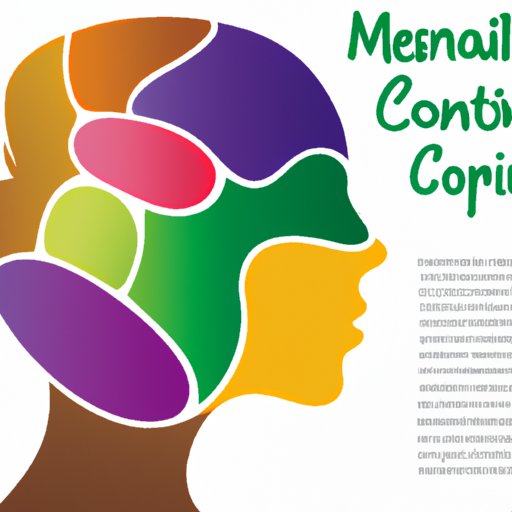Introduction
Culturally sensitive therapy is an important part of providing quality mental health care to individuals from diverse backgrounds. By recognizing and respecting the unique cultural values and experiences of each patient, therapists can ensure that they are providing the most effective treatment possible. This article will explore why culturally sensitive therapy is essential for clients from all walks of life, and how it can be used to create a safe and supportive environment for healing.
Examining the Importance of Cultural Sensitivity for Clients From Diverse Backgrounds
When it comes to providing quality mental health care, understanding the impact of cultural differences on communication and treatment is key. Different cultures have different ways of expressing emotions, communicating needs, and resolving conflicts. As such, it is important for therapists to take the time to understand and respect the cultural values and beliefs of their patients in order to provide the best possible treatment.
In addition to being aware of the cultural differences among their clients, therapists must also be willing to embrace a multicultural approach to mental health care. By incorporating different methods of treatment and understanding into their practice, therapists can better meet the needs of their patients and foster a sense of inclusion and acceptance.
Exploring How Culturally Sensitive Therapy Can Bridge Communication Gaps Between Therapists and Their Patients
Culturally sensitive therapy can be used to bridge communication gaps between therapists and their patients. By building rapport through cultural awareness, therapists can better understand the unique needs and experiences of their patients and tailor their treatment accordingly. Furthermore, utilizing intercultural competence in therapy can help to create an environment of respect and acceptance, which can be beneficial for both the therapist and the patient.
By taking the time to learn about their patients’ cultures, backgrounds, and experiences, therapists can create an atmosphere of safety and trust. This can be especially important for clients who may feel intimidated or uncomfortable in traditional therapy settings. Additionally, by being mindful of the power dynamics between therapist and patient, therapists can ensure that their clients are respected and heard throughout the therapeutic process.

Highlighting the Need for Cultural Competency Among Mental Health Practitioners
In order to properly address the needs of their clients, mental health practitioners must be well-versed in cultural competency. Examples of cultural competence include being able to identify and understand different cultures, being aware of one’s own biases, and being willing to learn from other cultures. In addition, mental health professionals should be knowledgeable about the language and customs of the cultures they are serving, as well as any applicable laws and regulations.
Mental health professionals should also receive ongoing training and education in order to remain up-to-date on the latest developments in culturally sensitive therapy. By investing in their knowledge and skills, mental health professionals can ensure that their clients receive the highest quality of care possible.

Investigating the Potential Benefits of Culturally Sensitive Therapy for Clients Who Are Members of Minority Groups
Culturally sensitive therapy can be particularly beneficial for clients who are members of minority groups. By utilizing cultural knowledge to foster self-awareness, therapists can help their clients to navigate issues of power and privilege. Additionally, by addressing systemic oppression and discrimination, therapists can help their clients to gain a better understanding of their own identity and the world around them.
Furthermore, by understanding and valuing diversity, therapists can create an atmosphere of acceptance and respect. This can be especially helpful for clients who may feel isolated or judged due to their cultural or ethnic background. By creating a safe and non-judgmental environment, therapists can help their clients to explore their identity and discover new ways of coping with their struggles.

Analyzing How Cultural Sensitivity Can be Used to Create a Safe Space for Healing
Culturally sensitive therapy can be used to create a safe space for healing. By exploring cultural identity, therapists can help their clients to gain an understanding of their own values and beliefs. Additionally, by understanding and valuing diversity, therapists can create an atmosphere of acceptance and understanding. This can be beneficial for clients who may feel isolated or misunderstood due to their cultural background.
Finally, by establishing a secure and non-judgmental environment, therapists can ensure that their clients feel safe and supported. By helping their clients to explore their feelings and experiences in a safe and comfortable setting, therapists can help them to develop healthier coping strategies and achieve greater emotional wellbeing.
Investigating How Culturally Sensitive Therapy Can Help to Reduce Stigma Around Seeking Mental Health Care
Culturally sensitive therapy can also be used to reduce stigma around seeking mental health care. By dispelling myths and misconceptions about therapy, therapists can help to create a more open and accepting attitude towards seeking professional help. Additionally, by promoting accessibility of mental health services, therapists can help to remove barriers that might otherwise prevent individuals from seeking the help they need.
Finally, by educating communities on the benefits of therapy, therapists can help to encourage individuals to seek help when needed. By highlighting the positive effects of therapy, therapists can help to reduce the stigma surrounding mental health and ensure that everyone has access to the care they need.
Conclusion
Culturally sensitive therapy is an important part of providing quality mental health care. By understanding and respecting the unique cultural values and experiences of each patient, therapists can ensure that they are providing the most effective treatment possible. From bridging communication gaps between therapists and their patients to reducing stigma around seeking mental health care, there are many potential benefits to utilizing culturally sensitive therapy. We encourage everyone to seek professional help if needed, as therapy can be an invaluable tool for achieving emotional wellbeing.
(Note: Is this article not meeting your expectations? Do you have knowledge or insights to share? Unlock new opportunities and expand your reach by joining our authors team. Click Registration to join us and share your expertise with our readers.)
